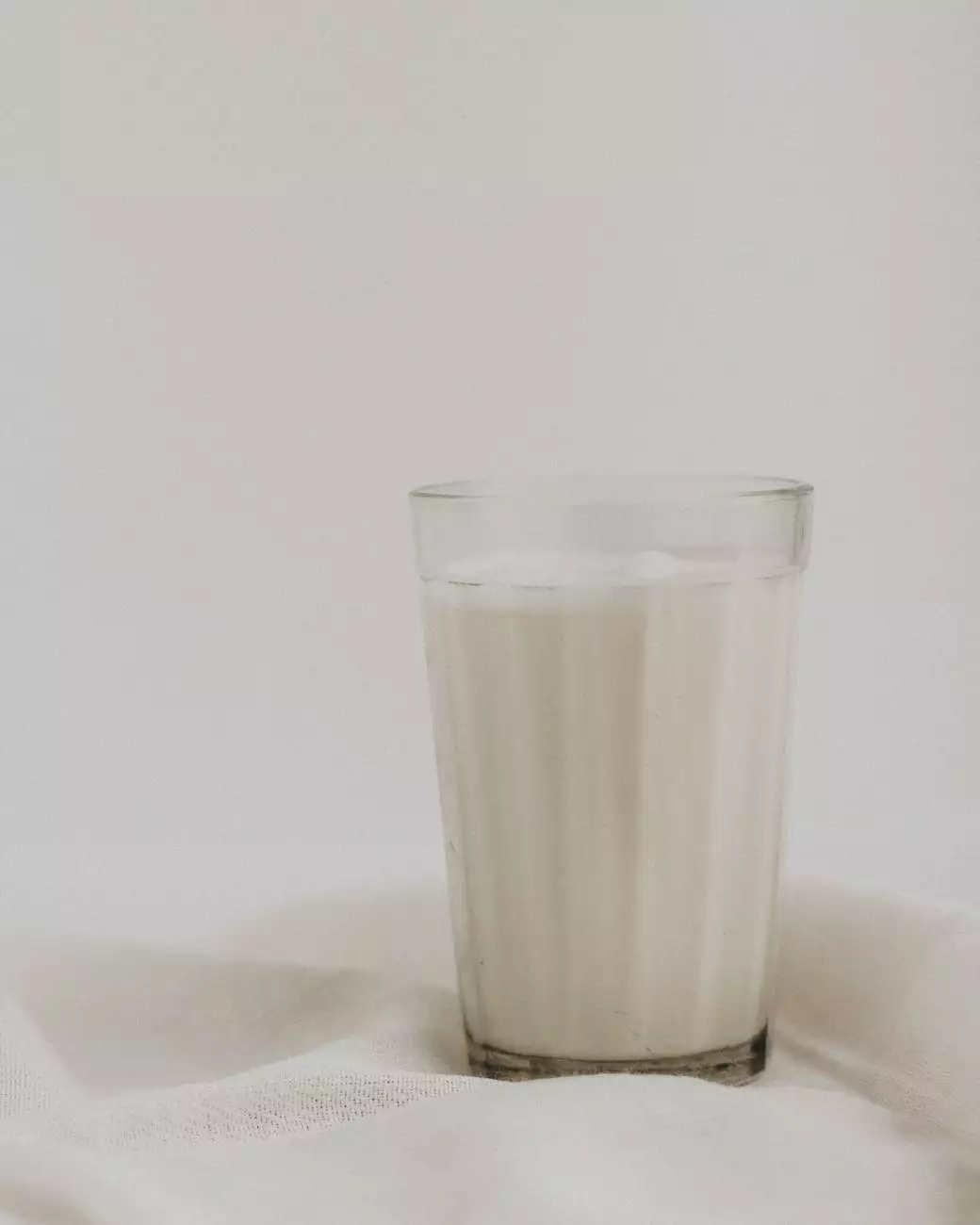The Milk Myth
Resources
Debunking Misconceptions About Milk and Your Health
Welcome to Sanctuary Therapies, your trusted source for alternative and natural medicine in the Health industry. In this article, we aim to shed light on the milk myth and its impact on your overall health and well-being.
The Role of Milk in Our Diet
Milk has been a staple in many people's diets for centuries, believed to provide essential nutrients and promote strong bones. However, recent research and scientific studies have challenged the notion that milk is necessary for optimal health.
Calcium and Bone Health
One of the most commonly promoted benefits of milk is its calcium content and its role in maintaining strong bones. It is true that calcium is crucial for bone health, but there are alternative sources that provide equal or even higher calcium levels without the potential drawbacks associated with milk consumption.
Consuming excessive amounts of milk and dairy products has been linked to digestive issues, such as lactose intolerance and irritable bowel syndrome (IBS). Additionally, certain studies suggest that high intake of milk may not necessarily lead to a reduced risk of fractures or osteoporosis, as previously claimed.
Protein and Muscle Growth
Another argument in favor of milk consumption is its protein content and its potential benefits for muscle growth and repair. While milk is indeed a source of protein, there are numerous other protein-rich food options available, especially for those following a plant-based or dairy-free diet.
Plant-based proteins, such as legumes, nuts, and seeds, can offer a wide range of nutrients along with their protein content. It is important to note that excessive consumption of milk-derived proteins may lead to adverse effects, including increased mucus production and potential inflammation in certain individuals.
Understanding Milk-Related Health Concerns
Lactose Intolerance and Dairy Allergies
Lactose intolerance is a common condition where individuals lack the necessary enzymes to digest lactose, the sugar found in milk and dairy products. Symptoms can include bloating, gas, and diarrhea after consuming milk. Many people assume that lactose intolerance automatically means they should avoid all dairy, but there are options available for lactose-free or low-lactose products for those who still enjoy dairy or dairy alternatives.
Dairy allergies, on the other hand, are immune reactions to proteins found in milk. They can cause more severe symptoms, such as hives, swelling, and even anaphylaxis in some cases. Individuals with dairy allergies should strictly avoid all dairy products and opt for alternative sources of nutrients.
Hormones and Milk Production
Concerns about hormones, such as estrogen and progesterone, in milk have arisen due to the use of hormone treatments in dairy cattle. While the levels of these hormones in milk are generally low and within the acceptable range, some individuals might choose to avoid milk sourced from cows treated with hormones.
It's worth noting that organic milk is produced without the use of synthetic hormones or antibiotics, providing a potential alternative for those seeking uninterrupted hormone-free milk consumption.
Exploring Alternative Dairy-Free Options
If you have decided to reduce or eliminate your milk consumption, there are various alternative options available, offering a variety of flavors and nutrients to meet your dietary needs.
Plant-Based Milk Substitutes
Plant-based milk substitutes, such as almond milk, soy milk, oat milk, and coconut milk, have gained popularity in recent years. These dairy-free alternatives offer a wide range of flavors and can be used in cooking, baking, or simply enjoyed as a refreshing beverage.
It's important to read the ingredient labels of these products, as some may contain additives or sweeteners that you may prefer to avoid. Making your own homemade plant-based milk can also be a fun and cost-effective option.
Other Calcium-Rich Foods
While milk is often associated with calcium, it's important to remember that calcium is not limited to dairy products. Some excellent non-dairy sources of calcium include leafy green vegetables, tofu, fortified plant-based milks, chia seeds, and almonds.
Conclusion
In conclusion, it's important to critically evaluate the role of milk in our diets and consider alternative options that may better suit our individual needs and preferences. Sanctuary Therapies aims to provide you with valuable information and alternative health solutions to support your journey towards a healthier lifestyle.
We encourage you to consult with our team of experts for personalized recommendations tailored to your unique requirements. Together, we can explore the best path forward for your health and well-being.
Contact Sanctuary Therapies Today
For more information about our alternative and natural medicine solutions, please contact Sanctuary Therapies at (123) 456-7890 or email us at [email protected].










